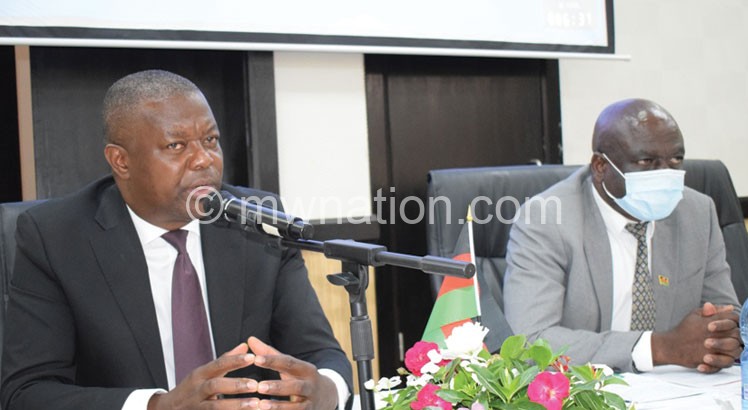Investments in Internet not bearing fruits, says minister
Minister of Information Gospel Kazako says government’s investments towards improved Internet connectivity are failing to make meaningful impact due to high tariffs.
Kazako, who was joined by Minister of Energy Newton Kambala, said this on Monday in Blantyre during an interactive information and communication technology (ICT) stakeholders meeting.
He said “many negative things” are happening because statutory corporations handling ICT matters were working in isolation, resulting in duplication of projects.
He said: “We needed to know what we have for us to move forward as we use ICT to develop this country.

“ICT is the future and being the future, we must be serious in our resolve to ensure that we don’t make mistakes on the way.”
In 2016, Treasury signed a $23 million (about K17.2 billion) concessional loan with China for the Malawi National Fibre Backbone Project, which connected 24 districts.
The concessional loan was pegged at 21 percent interest with a five-year grace period and a 15-year repayment period.
This was on the back of another project to construct a fibre optic network by SimbaNet, through the $20 million (about K15 billion) World-Bank-funded connectivity project implemented by E-Government Department.
The overall goal was to have the country’s Internet connectivity improve and charges remarkably drop.
Five years down the line, Malawi still lags behind on Internet connectivity characterised by high charges, low penetration rates and poor service provision, contributing to high cost of doing business, limited innovation and poor information flow.
Escom, which has a 3 500 kilometre (km) fibre, with 1 350km added as a result of the National Fibre Backbone Project Phase One and another 450km added following an agreement with Globe Internet Limited, has a utilisation of 50 percent on its backbone.
Escom chief executive officer Allexon Chiwaya said the underutilisation is despite its affordability, with prices ranging from $18 (about K13 500) per megabyte per second (mb/s) to $100 (K75 000) mb/s.
On his part, Kambala said his ministry will support Escom’s drive to have an ICT company to run the ICT business, adding that “whether it will be run as a unit or stand alone, we will help them to deliver”.
Figures from the International Telecommunications Union show that Malawi has 2.7 million Internet users or 14.2 percent of the population, as at December 2019.





